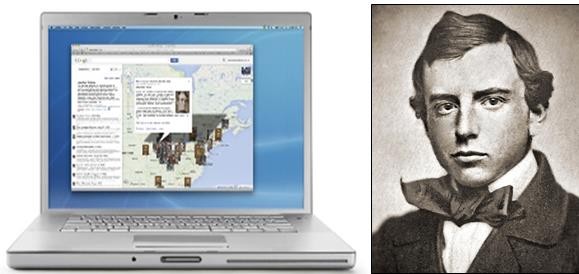Social media tools like Facebook and Twitter seem to be almost everywhere. Originally founded merely a decade ago at Harvard (the alma mater of Henry Adams), Facebook now has well over a billion active users worldwide. Currently, there are about 500 million tweets sent out each day and Twitter (founded 2006) is even younger than Facebook. The pace of change in this case is truly dizzying.
How has this veritable social media revolution affected you? Take a look at this useful timeline put together by Prof. Anthony Curtis and see where your experience fits into this fast-moving era. How do you imagine these changes compare to previous eras of major technological disruption?
Then start to consider some of the tradeoffs inherent in the age of social media. What have you been losing by sharing (and staring) online? Journalist Nick Bilton recently offered a very smart reflection on the lost time and distractions inherent in these digital times. Do you find his arguments persuasive? What about the political dangers of social media? How might these tools empower extremists? This was the implicit concern of a recent New York Times piece about the sophistication of terrorist group ISIS on the social media front.
Ultimately, we will want to ask what is to be done? How might 21st century education embrace (and improve) social media, perhaps even turning it into a powerful form of scholastic media? Take a quick look at this story about Twitter in the classroom and then try to speculate about ways that teachers and students will approach such tools in the future –that is, if they still exist in the future.
